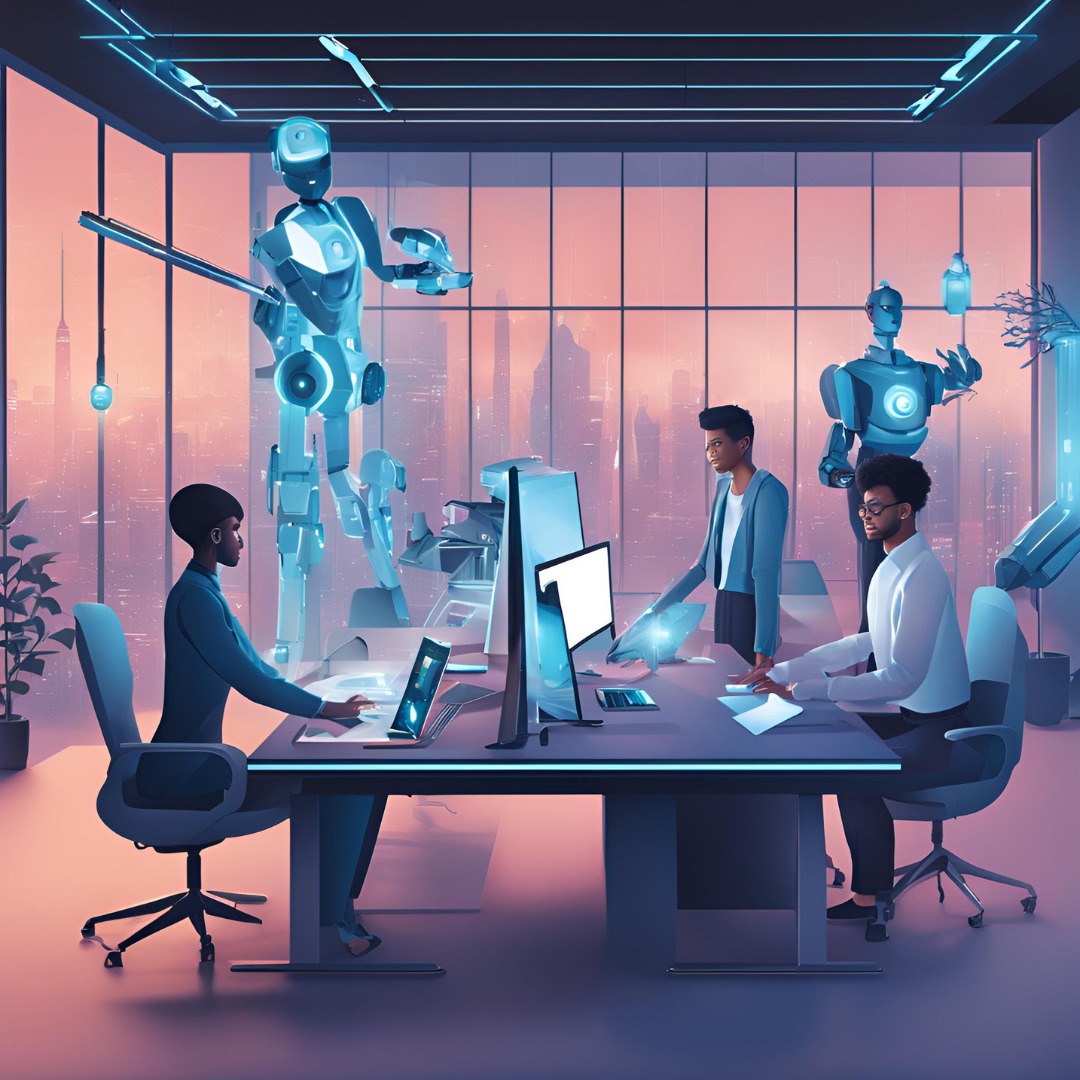Blogs / AI and Employment: How Automation is Changing the Job Market
AI and Employment: How Automation is Changing the Job Market
Admin / December 19, 2024

The rapid advancements in artificial intelligence (AI) are reshaping the global job market. While some fear job losses due to automation, others see immense opportunities for growth and innovation. This blog delves into the dual impact of AI on employment—highlighting the jobs most affected by automation and the new roles created by this technology.
The Evolution of Jobs Through AI
Automation powered by AI has been a game-changer for industries. From customer service to manufacturing, routine tasks are now being handled with unprecedented efficiency. While this transformation has led to some displacement of jobs, it has also opened doors to new opportunities that were previously unimaginable.
Jobs Most Affected by AI Automation
AI excels in performing repetitive, data-driven tasks with precision. As a result, certain roles have been significantly impacted:
- Manufacturing and Assembly Line JobsRobots powered by AI have automated repetitive tasks like assembling parts, packaging, and quality inspection. Companies save costs, but workers in these roles often need to reskill.
- Customer Service Representatives
AI chatbots and virtual assistants handle customer inquiries, reducing the demand for human agents. However, humans are still needed for more complex, personalized interactions. - Data Entry and Clerical Work
Machine learning algorithms process and analyze data faster than humans, making data entry jobs increasingly redundant. - Retail Cashiers
Self-checkout systems and AI-based inventory management reduce the need for traditional cashier roles.
AI-Created Opportunities
Despite the displacement of certain roles, AI has created a wealth of new opportunities:
- AI Specialists and Data Scientists
The demand for professionals who can design, implement, and maintain AI systems is skyrocketing. These roles require specialized skills in machine learning, data analysis, and programming. - Digital Marketing Strategists
AI tools analyze consumer behavior to create targeted marketing campaigns. Digital marketers now use these tools to enhance engagement and ROI. - Healthcare Tech Innovators
AI in healthcare powers diagnostics, treatment planning, and wearable health technology. This has created roles for tech-savvy healthcare professionals. - Cybersecurity Experts
As AI adoption grows, so does the need for experts who can safeguard systems from cyber threats. - Creative Content Developers
AI tools assist creators in generating videos, articles, and even artwork. This collaboration enhances productivity without replacing human creativity.
The Role of Upskilling
For workers impacted by AI-driven changes, upskilling is essential. Governments and companies are investing in training programs to prepare the workforce for future demands. Courses in coding, AI application development, and digital literacy can help bridge the skill gap.
AI’s Influence Across Industries
AI’s impact on employment varies by industry:
- Healthcare: Automating diagnostics and streamlining administrative tasks free up professionals to focus on patient care.
- Education: AI tools enable personalized learning experiences, enhancing the teaching profession rather than replacing it.
- Transportation: Autonomous vehicles and AI-powered logistics systems optimize supply chains, reducing costs and increasing efficiency.
The Ethical Perspective
As AI reshapes the job market, ethical considerations come into play. Governments, businesses, and policymakers must ensure a balance between technological progress and workforce well-being. Policies like universal basic income (UBI) and retraining programs can help mitigate adverse effects.
The Future of Work
The future of work will be a collaboration between humans and AI. Routine tasks will be automated, but roles requiring creativity, empathy, and critical thinking will continue to thrive. Businesses adopting AI should prioritize employee well-being and invest in creating opportunities for growth.
Conclusion
AI is not merely a threat to employment—it is a catalyst for transformation. By embracing change, reskilling, and fostering innovation, individuals and industries can adapt to this new era. Automation may change the job market, but the human ability to innovate ensures a promising future for all.